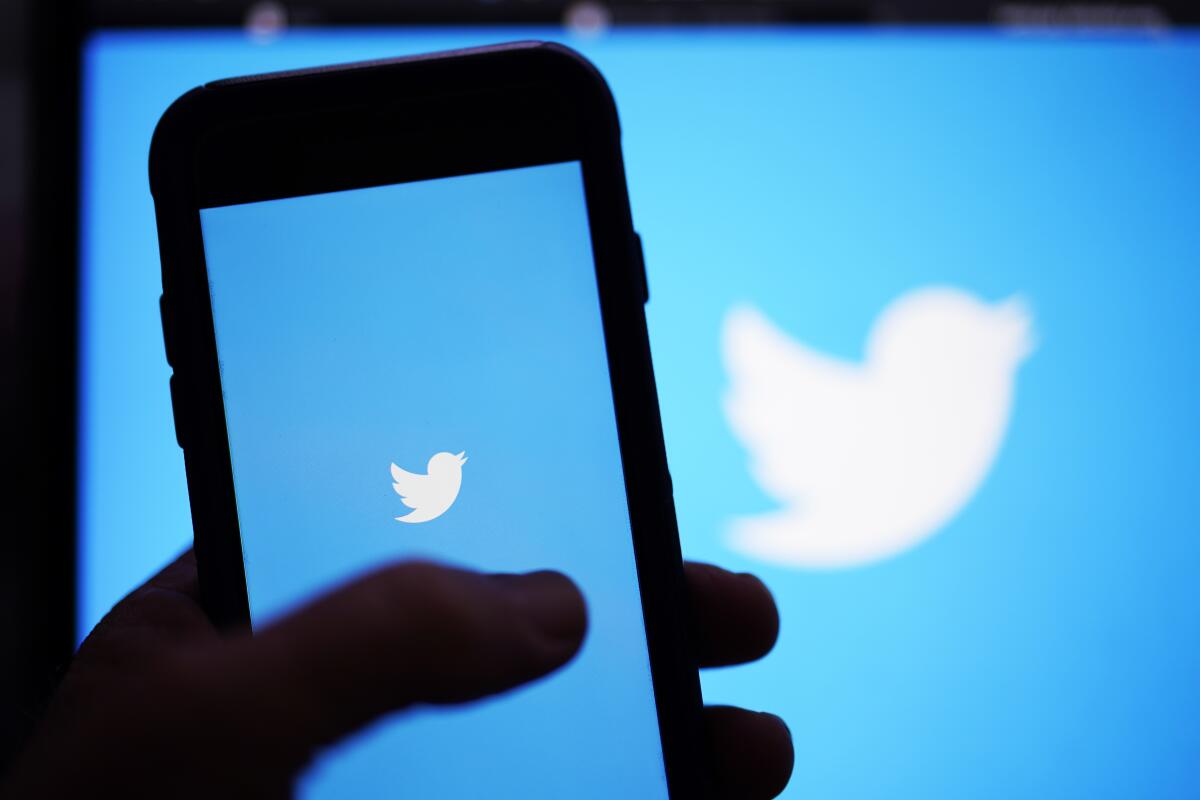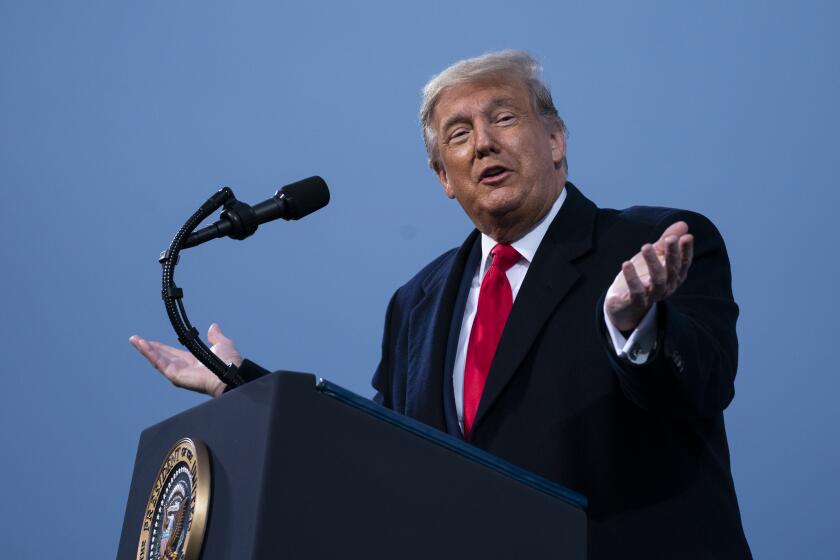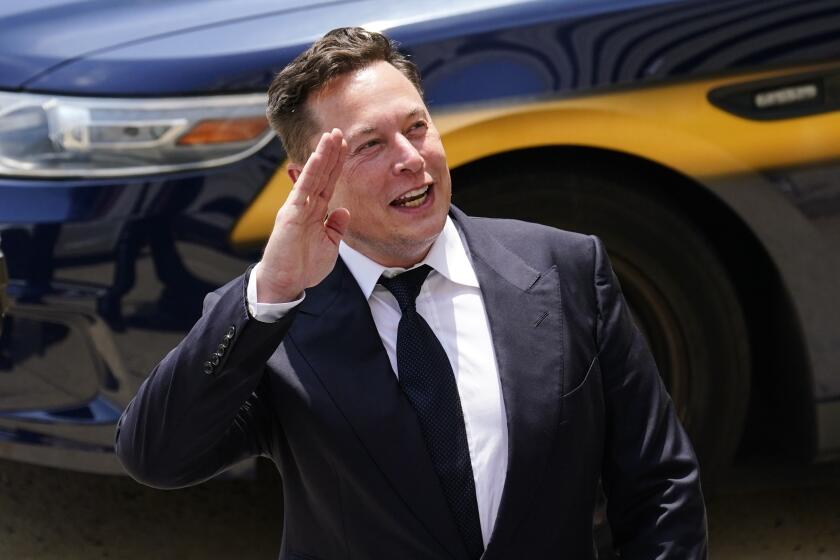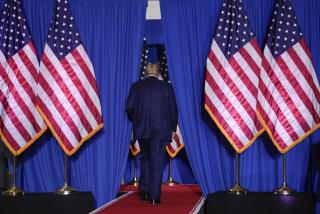The mean tweets are coming from inside the House. Study of politicians’ Twitter looks at ‘civility’

It’s not your imagination. Political discourse on Twitter really has grown meaner in recent years, according to a new study.
The research, published Thursday in the journal Social Psychological and Personality Science, found that the level of incivility in tweets by members of Congress increased by 23% between 2009 and 2019 — a change the study’s authors attribute in part to how Twitter’s “like” and “retweet” buttons reinforce the spread of toxic content.
Its findings mark “the first robust evidence that incivility is rising among American politicians on Twitter,” wrote the study’s authors, hailing from several U.S. and Canadian universities.
Researchers examined 1.3 million tweets from official congressional accounts between 2009 and 2019. To quantify the levels of incivility, they used artificial intelligence to analyze the messages and assign a toxicity score from 0 to 100, reflecting the likelihood that someone would consider the text to be rude or disrespectful.
The analysis classified a 2009 tweet by then-Sen. Arlen Specter (D-Pa.) with a high incivility score of 45.1 for accusing a rival of “going AWOL” from his congressional post. And a 2019 tweet by Rep. Kevin Hern (R-Okla.) — which said another politician was “endorsing infanticide & proudly doing it!” — scored at 47.6.
To some degree, the increasingly antagonistic tone is due to more civil members of Congress being replaced by less civil ones, the study says. But the findings attribute more of the shift to members themselves changing over time and posting more provocative tweets.
The increase in incivility was most pronounced among liberal Democrats, especially in the first half of President Trump’s term.
“They were much more likely to be reacting negatively to Donald Trump — both his behaviors and his tweets,” said Robb Willer, a co-author and director of the Polarization and Social Change Lab at Stanford University.
The study analyzed tweets during President Obama’s two terms and the first two years of Trump’s presidency. (The sample did not include posts from the contentious 2020 election or the start of President Biden’s term.)
Could banned Trump allies return to Twitter under Elon Musk? A look at the former president’s backers who were kicked off the social media platform.
The analysis also evaluated Obama’s and Trump’s tweets. Obama’s posts had an average incivility score of 13.4, which remained fairly steady over his two terms. In Trump’s first year, his score was 18.8, and it climbed to 23.0 by 2019.
The study didn’t place any moral judgments on Twitter incivility, Willer said. People sending harshly worded tweets “might have all sorts of explanations that might be morally well-founded and valid for why they engaged in the speech they did.”
Whatever the motivation, the more toxic tweets stand out in Twitter’s crowded online platform. The average congressional tweets were not especially uncivil, with relatively low scores. But the tweets with higher toxicity scores tended to get much more attention, via retweets and likes, which increase the public’s exposures to such messages and make incivility seem more prominent than it actually is, according to the study.
The study’s results indicate “the people running these accounts are learning from these metrics they can see and doing more of whatever gets likes and retweets,” Willer said.
But, as the common Twitter disclaimer goes, retweets and likes don’t equal endorsement. People may retweet a message to draw attention to content they dislike, for example. Willer said their research indicated that users are largely not fond of toxic tweets, despite appearances to the contrary.
“There’s a possibility here that the Twitter platform, with its pretty spare metrics, may be misleading people that certain tweets are more popular with people ... than they really are,” Willer said.
Just as congressional Twitter feeds have grown more toxic, so have the tweets of the general population, the authors said, based on a rough sample of civilian posts.
Rep. Ted Lieu (D-Torrance), one of the most prolific tweeters of California’s congressional delegation, said he wasn’t surprised to hear that incivility has grown on the platform — which he blamed partly on anonymous users and bots. His own feed has plenty of pointed messages to Republicans, often delivered with dry humor, as well as standard fare highlighting his work in Congress.
After 13 years on the platform, Lieu said it’s still hard to predict what will take off in the Twittersphere.
“Sometimes I’ll write what I think is an amazing tweet about a very important policy point and get only a few” likes or retweets, he said. But an evening observation that Scotch and peanut butter make a tasty combination will yield “astronomical” engagement.
Conservatives who chafe against Twitter’s content moderation and banning of former President Trump see an upside in Elon Musk’s views on free speech.
One consistent factor for a viral tweet: Trump.
“What I’ve found is in the last five years, when the former president would say something stupid or say something false, and I responded to that, that would get higher engagement,” Lieu said. “If the former president is going to say 27 false things a week, I’m going to try to highlight all 27 false things he said.”
While Twitter has not been seen as a hub of civility for some time, some on the platform expressed fears this week that the tone may worsen now that Tesla Chief Executive Elon Musk is set to take the reins. Musk says Twitter’s current system of content moderation clamps down on speech. He has said he wants fewer restrictions on what can and cannot be posted, although he has not given many specifics; users have warned that loosening the rules could lead to upticks in harassment, abuse or pornographic images.
Republicans, meanwhile, have celebrated Musk’s takeover, anticipating he will lift moderation that they see as silencing their views. Among other issues, they object to Trump and other prominent right-wing politicians being blocked or suspended from the site. And Twitter’s fact-checking of false claims of election fraud and COVID-19 misinformation has had a disproportionate effect on right-leaning accounts.
“The most uncivil aspect of Twitter is the company’s transparent censoring of free speech and silencing of conservatives,” said Rep. Darrell Issa (R-Bonsall). “Additionally, the platform will not reach its potential or best serve its users until it demonstrates a commitment to fundamental fairness. I’m optimistic that may soon happen.”
More to Read
Get the L.A. Times Politics newsletter
Deeply reported insights into legislation, politics and policy from Sacramento, Washington and beyond. In your inbox three times per week.
You may occasionally receive promotional content from the Los Angeles Times.













